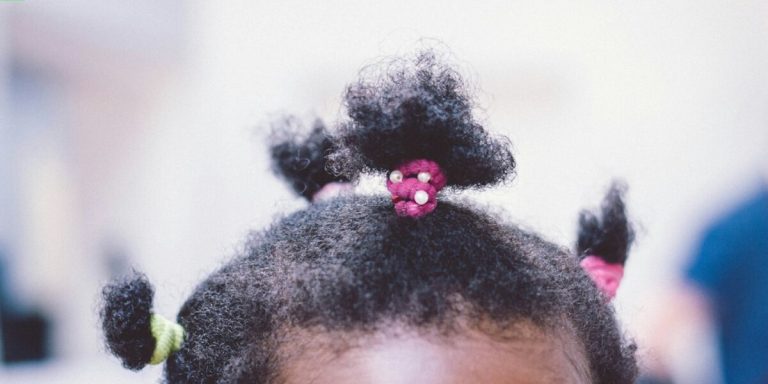Can Smoking Weed Cause Hair Loss? An Insight into the Link Between Cannabis and Baldness.
Many people grapple with the question, “Can smoking weed cause hair loss?” It’s a query that has been circulating for years especially as cannabis usage becomes more commonplace. Awareness about its potential side effects is crucial and one subject matter that tends to pop up frequently is if there’s an association between marijuana consumption and baldness – specifically, whether or not it impacts your mane health.
The following post aims to shed light on this issue by exploring scientific studies concerning the connection of hair loss with cannabis use. Hair shedding can have various triggers such as stress, bad nutrition habits but few would anticipate putting ‘smoking pot’ in this list too until recent investigations started hinting towards possible associations. Understanding these causes may come handy in preserving overall scalp well-being.
Did you know?
Contrary to popular belief, THC found in cannabis can actually impede hair growth by shortening the Anagen (active) phase of hair follicle development.
Understanding the Connection Between Smoking Weed and Hair Loss
While marijuana has been increasingly accepted for its therapeutic effects, there are potential side effects that users should be aware of. One commonly asked question is: “Can smoking weed cause hair loss?” There’s a lack of specific scientific studies linking the use of marijuana directly to hair loss. However, understanding how it interacts with our body systems might provide us with some plausible connections.
Firstly, it’s important to note that stress and poor nutrition can lead to hair thinning or baldness – both factors sometimes associated with habitual weed smoking. When individuals smoke weed frequently, they may experience heightened anxiety levels which prompt an increase in cortisol (the stress hormone) production; this could potentially interfere with healthy hair growth cycle causing premature shedding or weakening of the strands.
Moreover, regular cannabis consumption could affect your diet negatively due to “munchies”, leading you towards unhealthy food choices which fail to deliver necessary nutrients vital for optimum scalp health and strong locks. Inadequate protein intake along with deficiencies in essential micronutrients like iron and zinc can leave your strands weak at roots contributing indirectly towards increased fallout.
Exploring Scientific Research on Cannabis and Hair Health
Numerous scientific studies have explored the relationship between cannabis consumption and hair health. Many people often question, “Can smoking weed cause hair loss?” Let’s delve into what research says about this common concern.
A study published in Dermatology Times suggested that any form of smoke could potentially damage your DNA and cells’ protein production. This includes those proteins responsible for promoting healthy hair growth. Thus, it is plausible to infer that regular inhalation of marijuana smoke might induce some level of harm to your tresses.
Another consideration lies within the idea that THC—the primary psychoactive compound found in cannabis—can disrupt hormonal balance when consumed excessively or over prolonged periods. Testosterone levels may spike initially then plummet dramatically after heavy use causing a hormone imbalance, which has been linked with premature balding especially among males prone to male pattern baldness due to genetic predisposition.
Moreover, cannabinoids present in weed have shown mixed results on human hair follicles according to a 2019 study published by Scientific Reports journal. Some strains were found beneficial while others induced negative effects suggesting possible strain-dependent impacts on scalp wellbeing and consequent implications for potentiality towards excessive shedding or thinning caused by routine intake.
Examining How THC Affects Hair Follicles
Many people question, “can smoking weed cause hair loss?” This concern stems from the psychoactive ingredient found in cannabis—tetrahydrocannabinol (THC). THC is known for its various effects on the body and mind. But how exactly does it interact with our hair follicles?
To understand this connection, let’s first take a look at how your hair grows. Our scalp contains small pockets called follicles that produce strands of hair throughout our lives via a cycle of growth, regression, rest, and shedding.
Now here comes THC into play. Some research suggests that excessive consumption can affect bodily functions such as hormonal balance and protein synthesis – two critical aspects responsible for healthy cell production including those within your precious follicles.
Lifestyle Factors Contributing to Hair Loss Beyond Marijuana Use
Many people are curious about the role of lifestyle factors such as marijuana use in hair loss. It’s an enquiry gaining traction especially since recreational cannabis usage has skyrocketed across several parts.
Scientifically, there isn’t enough hard evidence to conclusively declare that smoking weed directly causes hair loss yet. However, it does have indirect influences on factors contributing towards this condition. High THC content found in marijuana can weaken your body’s immune system which ultimately affects the health and growth cycle of your scalp follicles – a critical factor for maintaining healthy strands of hair.
Another important aspect is nutrition — often overlooked when discussing effects associated with weed smoking. Regular users might experience changes in their eating habits or sleep patterns, both crucial elements relating to overall health including nourishment provided to our scalp and locks. Poor nutritional intake could deprive your follicles from essential vitamins leading them unable to produce new cells effectively causing thinning over time.
So while it may not be correct saying ‘smoking pot makes you bald’, cognitive behaviours altered by regular consumption do influence conditions indirectly linked with losing those precious mane hairs we hold dear.
Furthermore, let’s also keep reminding ourselves that irrespective of whether one smokes marijuana or not; managing stress levels well along with proper dieting will significantly contribute more actively toward maintaining a healthier head full mass anyday compared to worrying solely if occasional pot-smoke would lead us down path into receding lines early than due course nature intended!
The Impact of Stress and Hormones on Hair Growth
Stress, a universal phenomenon and an inevitable part of our lives, can have unwarranted consequences on both psychological health and physical appearance. When it comes to hair growth, high-stress levels can misbalance the normal cycle leading to transient or chronic hair loss.
In 2023, with everyday life becoming increasingly fast-paced coupled with persistent global anxieties like climate change, pandemics etc., stress-induced hair loss is rapidly gaining prominence as a significant concern. Prolonged exposure to these daily pressures results in accelerating cortisol production – the primary hormone involved during stressful periods might directly influence your lush locks’ well-being.
Indeed such imbalances often arise from lackadaisical habits that we tend not associate with effects on our tresses: improper diet punctuated by excessive caffeine intake or smoking weed habitually all carry potential risks.
Nutritional Deficiencies That Can Lead to Thinning Hair
Understanding the right nutrition for your hair is crucial in averting any potential damage or thinning. Many people often link habits such as smoking weed to hair loss, coming up with questions like, “Can smoking weed cause hair loss?” While it’s true that marijuana use can indirectly lead to poor nutritional choices which may impact your hair health, there are more direct food-related lifestyle factors at play.
To begin with, a deficiency of protein in one’s diet can significantly contribute towards losing lustrous locks. Without enough proteins feeding our follicles and strands, weakening and breakage occur over time. The top sources include fish, lean meats and eggs among other plant-based options comprising beans and lentils.
Next on the list comes Vitamin D deficit; this essential nutrient helps stimulate new and old cells alike inside the root of our scalp – promoting stronger growth overall throughout life’s various seasons! Sunlight exposure aside from dairy products serves as perfect helpers here.
Omega-3 fatty acids form another key component needed by every individual to maintain their crowning glory intact — mainly found within cold-water fishes plus certain nuts/seeds too alongside some fortified foods available today in modern markets globally!
Comparing Other Common Causes of Alopecia with Cannabis Usage
While there are several factors contributing to hair loss, known as alopecia, the correlation between smoking weed and this condition is a topic that has sparked numerous debates. It’s important first to understand other common causes of alopecia before delving into its relationship with cannabis usage.
One prevailing cause of hair loss is genetics which tends to be hereditary and primarily affects middle-aged men but also women. Medical conditions such as anemia or thyroid anomalies can lead to temporary or permanent hair shedding too. Environmental aspects including stress levels or significant nutritional deficiencies may contribute equally in causing premature baldness amongst people.
Now let us transition towards examining how cannabis fits within these scenarios. There isn’t definitive empirical evidence directly linking cannabis use and the onset of alopecia; however, some research suggests potential indirect connections worth considering for those concerned about keeping their locks intact amidst regular marijuana consumption.
Investigating Genetic Predisposition and Pattern Baldness
Interestingly, research shows that there’s no straight-forward answer to this question. Genetics play an undeniable role in determining predispositions towards certain types of alopecia such as Androgenetic Alopecia (AGA), commonly known as male or female pattern baldness.
Indeed, evidence points out that over 80% of men experiencing AGA are genetically prone with a family history indicating early onset of hair thinning or receding hairline. Similarly for women, about half who experience Female Pattern Hair Loss have other females in their families sharing similar experiences.
On another hand, investigations delving into whether smoking weed directly causes hair loss returned inconclusive results so far. While it’s well-known that lifestyle habits like diet and stress contribute to overall health including scalp wellness; attributing cannabis consumption solely as a trigger factor lacks substantial scientific data till date.
However caution must be applied while interpreting these findings because while genetics set stage for potential risks – environment plays its part too! For example if you’re already genetically susceptible to losing your locks – adding adverse environmental factors like poor nutrition from munching on junk food post-cannabis use could potentially accelerate pace at which you notice those hairs falling out!
Evaluating Environmental Triggers Versus Substance-Induced Effects
We expose our bodies and hair to potential triggers daily. These include pollution, stress levels, and diet—all significantly impacting scalp health and potentially inducing alopecia. Conversely, individuals may inadvertently consume substances that adversely affect their overall health or target areas like skin or hair.
One controversial question arises in this context: Can smoking weed cause hair loss?
When considering external influences leading to hair loss or alopecia conditions, it’s essential to analyze them from two discrete angles – natural/environmental triggers versus substance-induced effects.
Starting with environmental factors such as pollution; microscopic pollutants can infiltrate your pores when outdoors damaging your follicles over time by blocking vital nutrients reaching the roots thereby facilitating unwanted thinning. Stress too plays a crucial role in impacting hormonal balance resulting in different types of Alopecia areata often seen manifesting during high-stress periods.
Now if we shift focus towards dietary implications; consumption rich in processed foods lacking critical proteins necessary for healthy locks lead not only thicker strands but also stronger ones resistant against breakages common due fallouts experienced regularly while combing or washing.
Conclusion
So, can smoking weed cause hair loss? To conclude, it’s essential to remember that everyone is unique and your body may react differently from others. While some studies suggest a possible link between cannabis use and hair loss due to cortisol levels or nutrient deficiencies; other factors like genetics, hormones and lifestyle also play a critical role in regulating our hirsute health.
While it doesn’t hurt being cautious about one’s habits including marijuana consumption if you’re concerned about losing locks over time. Knowledge truly is power when combatting any problem – the more informed we are of the causes affecting us, the better choices we make for ourselves. For further insight into various “Hair Loss Causes” feel free to explore around on our website armed with curiosity as your guide.







